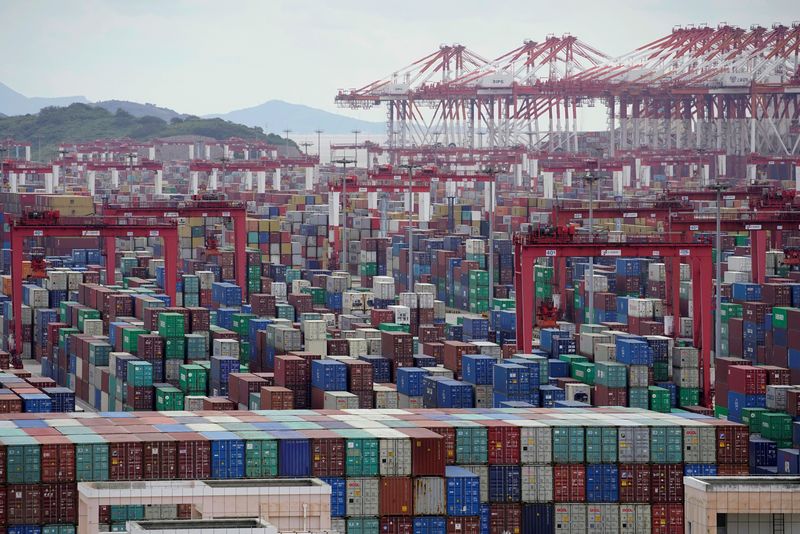Select Language

BEIJING (Reuters) -China's imports and exports fell much faster than expected in July, threatening growth prospects in the world's second-largest economy and heightening pressure for the government to provide fresh stimulus to prop up demand.
Imports dropped 12.4% in July year-on-year, customs data showed on Tuesday, missing a forecast fall of 5% in a Reuters poll. Exports contracted 14.5%, steeper than an expected 12.5% decline and the previous month's 12.4% fall.
Inbound shipments saw their biggest decline since January, when COVID infections shut shops and factories, crushing domestic demand.
The economy grew at a sluggish pace in the second quarter as demand weakened at home and abroad, prompting top leaders to promise further policy support and analysts to downgrade their growth forecasts for the year.
Poor imports and exports are the latest sign that third quarter growth could slow further, with construction, manufacturing and services activity, foreign direct investment, and industrial profits all weakening.
"Most measures of export orders point to a much greater decline in foreign demand than has so far been reflected in the customs data," said Julian Evans-Pritchard, head of China Economics at Capital Economics. "And the near-term outlook for consumer spending in developed economies remains challenging, with many still at risk of recessions later this year, albeit mild ones."
China's yuan hit a three-week low and Asian stocks turned weaker after the data.
The state planner last week said stimulus would be forthcoming, but investors have so far been underwhelmed by proposals to expand consumption in the automobile, real estate and services sectors.
Beijing is looking for ways to boost domestic consumption without easing monetary policy too much lest it triggers large capital outflows as other major economies raise interest rates to tame soaring inflation.
That is affecting economic activity in the rest of Asia. South Korean exports to China fell 25.1% in July from a year earlier, the sharpest decline in three months.
China's trade surplus grew by $80.6 billion, beating a forecast of $70.6 billion in the poll.

